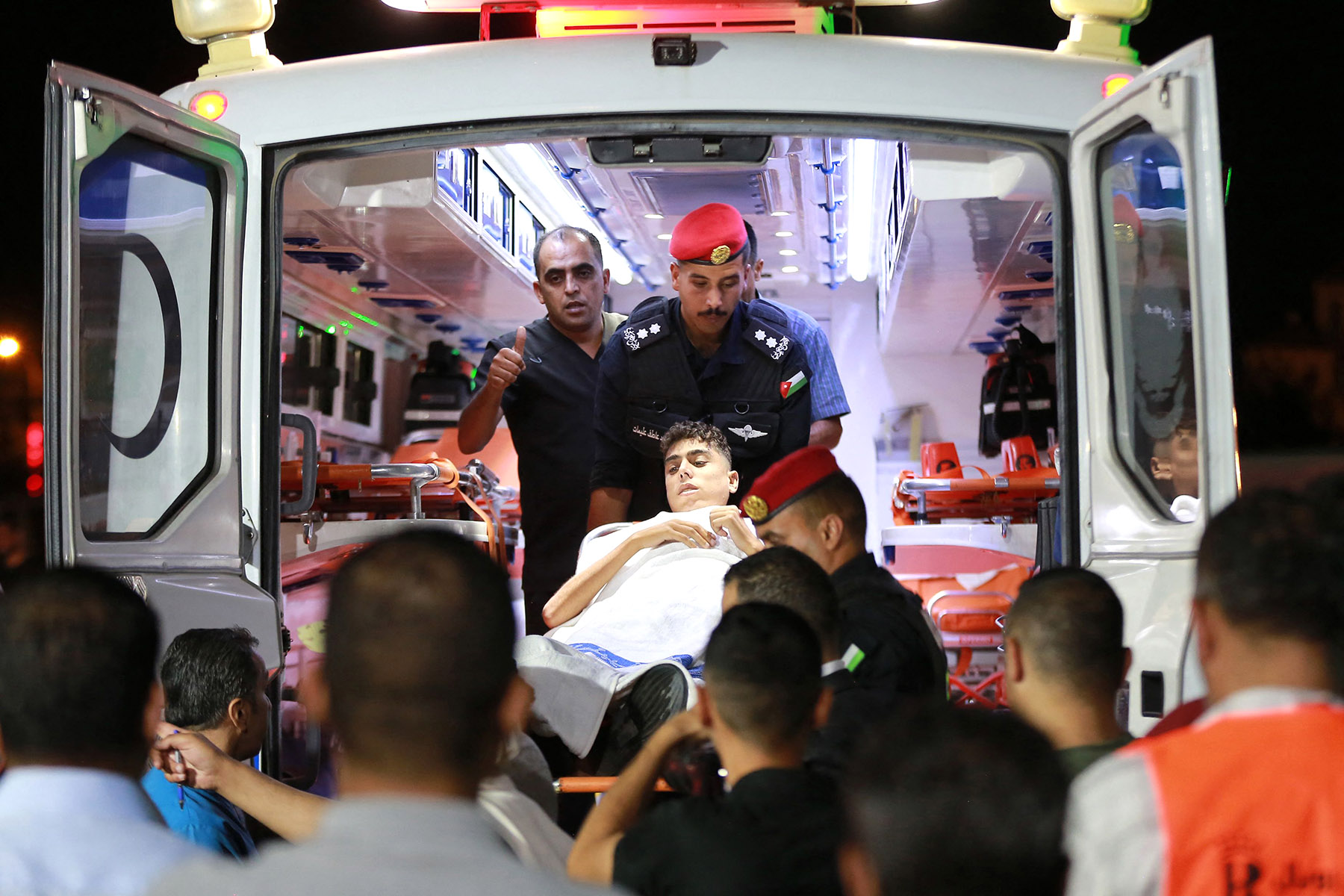Hague Group-led Bogota meeting calls for permanent ceasefire in Gaza, implementing ICJ rulings

Countries participating in a major international meeting in Colombia on July 16 issued a strong call for a global arms embargo on Israel and the enforcement of international rulings aimed at halting what they described as genocide in Gaza.
The joint declaration marked the conclusion of a two-day gathering brought together by the Hague Group, a group of eight countries that have committed to cutting military ties with Israel and to comply with arrest warrants issued against Israeli Prime Minister Benjamin Netanyahu by the International Criminal Court (ICC).
The Hague Group was founded in January 2025 by Bolivia, Cuba, Honduras, Senegal, South Africa, Malaysia, Namibia, and Colombia.
Representatives from more than 30 countries, including China, attended the two-day meeting to coordinate political and diplomatic pressure on Israel and its allies amid the deepening humanitarian crisis in Gaza.
By the end of the meeting, two dozen countries agreed to a series of six measures aimed at restraining “Israel’s assault on the Occupied Palestinian Territories”, including denying arms to Israel, banning ships transporting arms to Israel, and reviewing any public contracts with companies that could benefit from Israel’s actions in Gaza.
In a declaration following the meeting, the group noted that the “international community has a legal and moral obligation to act”.
“This includes suspending all military trade with Israel and ensuring that the orders of the ICJ are fully respected and implemented,” it said, referring to the International Court of Justice.
The declaration also called for an immediate and permanent ceasefire in Gaza, unrestricted access for humanitarian aid, and international prosecution of alleged war crimes and crimes against humanity.
Colombian President Gustavo Petro, who hosted the conference, described the outcome as “a milestone in the defense of international law and human dignity”.
“If the world fails to stop the genocide in Gaza, we are witnessing the collapse of the legal order built after World War II,” Petro said at the end of the gathering. “We cannot accept a world where the powerful kill with impunity and the rest stay silent.”
The declaration is the strongest joint statement yet by the group, which has aligned itself with a case brought by South Africa against Israel at the ICJ. The court has issued provisional measures ordering Israel to prevent acts of genocide, but critics say those orders are being ignored.
Francesca Albanese, the UN special rapporteur on human rights in the Occupied Palestinian territories, warned that the world is facing a “critical test.”
“The Israeli economy is structured to sustain the occupation that has now turned genocidal,” Albanese said, calling on states to cut ties with Israel. She called on UN member states to halt weapons transfers to Israel, support the ICJ process, and expand humanitarian assistance to Gaza’s besieged population.
“The events in Gaza meet the legal definition of genocide,” Albanese said, as quoted by Reuters. “This is not just a legal matter — it is a moral one. The time for action is now.”
Between May 27 and July 7, the UN Human Rights Office recorded the killings of 798 Palestinian civilians, including children, desperate to find food at or near distribution sites and humanitarian convoys, she said. Most of the dead were shot near the four sites run by the Gaza Humanitarian Foundation, founded by a private US group and currently funded by the US government.
More than 17,000 children have reportedly been killed and 33,000 injured in Gaza since the outbreak of the war in October 2023, an average of 28 children have been killed each day, said UNICEF Executive Director Catherine Russell. “Consider that for a moment. A whole classroom of children killed, every day for nearly two years.”
“For the last several months, the UN-led humanitarian response has been sidelined despite the fact that during the March ceasefire, we were delivering assistance in an efficient and safe manner,” she told a Security Council meeting on the humanitarian situation in Gaza.
While the United States and several Western nations continue to support Israel diplomatically and militarily, many Global South countries have expressed growing outrage over the toll of the conflict.
The Bogota meeting drew delegations from Latin America, Africa, Asia, and the Middle East, including officials from Palestine, South Africa, Algeria, Nicaragua, Venezuela, Spain, and Qatar.
A senior Palestinian representative said the conference was “an important show of solidarity”.
Brazil, for its part, reaffirmed its support for South Africa’s case at the ICJ. President Inacio Lula da Silva has previously called for an immediate ceasefire and described Israel’s actions as disproportionate.
The Bogota meeting group also announced plans to form a permanent working group to coordinate legal advocacy and international outreach. The Colombian president proposed that a follow-up summit be held later this year, potentially in South Africa or a member state of the African Union.
The Bogota Appeal will be formally submitted to the United Nations, the ICJ, and the International Criminal Court.
The writer is a freelance journalist for China Daily. Xinhua contributed to this story.


